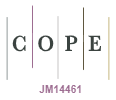Spirited Away (2001): the improbable encounter between capitalism and the spiritual world, in the light of the Marxist Current
DOI:
https://doi.org/10.5585/eccos.n69.24440Keywords:
marxist current, alienation, capitalism, spirited awayAbstract
This article aims to analyze the presence of the concepts of capitalism and alienation in Spirited Away (2001) as the film's characters are transformed into workers in a globalized world, thus intertwining a denunciation of consumerism. For this purpose, it was necessary to use the theoretical lenses of Literary Criticism to interpret the scenes and dialogues present in the film. Nevertheless, it was necessary to explore, according to the Marxist Current, the aspects focused on the unrestrained consumerism present in the work, emphasizing alienation and capitalism and highlighting how both are correlated within the feature film. In addition, within this work, it is possible to briefly discuss the theoretical assumptions of the Marxist Current in the essential concepts of capitalism and alienation, as well as to illustrate an alienated capitalist society in the spiritual world of the film. In order to validate these discussions, qualitative exploratory bibliographic research was carried out based on the studies of Suzuki (2009), Eagleton (2002), Tyson (2015). It is concluded that Spirited Away (2001) highlights several dangers of capitalism and alienation, namely, the devaluation of alienated creatures in the bathhouse, the fear of being alienated, and the capitalist society.
Downloads
References
ACAR, Adam. Japanese Culture and Traditions. Kimono Tea Ceremony Japan Experiences Maikoya, Kyoto, 2022. Disponível em: https://mai-ko.com/travel/culture-in-japan/japanese-culture-1/. Acesso em: 21 jan. 2023.
ANTUNES, Jadir. Da possibilidade a realidade: o desenvolvimento dialético das crises em O Capital de Karl Marx. 2005. Tese (Doutoramento em Filosofia) – Universidade Estadual de Campinas, Instituto de Filosofia e Ciências Humanas, Campinas, 2005. Disponível em: https://bdtd.ibict.br/vufind/Record/UNICAMP-30_0a42adc148c7ada99bc2db48ed5c95e1. Acesso em: 25 jan. 2023.
BRODERICK , Mick. Spirited Away by Miyazaki’s Fantasy. Intersections: Gender and Sexuality in Asia and the Pacific, Australia, ed. 9, ago. 2003. Disponível em: http://intersections.anu.edu.au/issue9/broderick_review.html. Acesso em: 22 jan. 2023.
CULLER, Jonathan. Literary theory: a very short introduction. New York: Oxford University Press, 2000.
EAGLETON, Terry. Marxism and Literary Criticism. Berkeley: University of California Press, 1976.
FUCHS, Christian . Marxism: Karl Marx’s Fifteen Key Concepts For Cultural And Communication Studies. New York, London: Routledge, 2020.
HOSKIN, Peter. How Japan became a pop culture superpower. The Spectator, London, 31 jan. 2015. Disponível em: https://www.spectator.co.uk/article/how-japan-became-a-pop-culture-superpower/. Acesso em: 21 jan. 2023.
KONDER, Leandro. Marxismo e alienação. 2. ed. São Paulo: Expressão Popular, 2009.
LOH, Suh Jean. Monster in the Machine: Monstrosity and Marxism in Spirited Away. Bright Lights Film Journal, 11 mar. 2022. Disponível em: https://brightlightsfilm.com/monster-in-the-machine-monstrosity-and-marxism-in-spirited-away/#.Y98Q3z1v9A0. Acesso em 20 jan. 2023.
LUYTEN, Sonia. Mangá e Anime: Ícones de uma cultura pop. Estudos Japoneses, 2018. Disponível em: https://fjsp.org.br/estudos-japoneses/artigo/manga_anime_sonia_luyten/. Acesso em: 20 Jan. 2023.
MARX, Karl. Economic and philosophic manuscripts of 1844. New York, London: Routledge, 2016.
MÉSZÁROS, István. Marx’s theory of alienation. London: Merlin, 2006.
NAGAOKA, Kelly T. Desvendando os seres da mitologia japonesa. Nippo, Brasil, 2021. Disponível em: https://www.nippo.com.br/especial/n253.php. Acesso em: 27 jan. 2023.
NAPIER, Susan J. Miyazakiworld: A life in art. Yale University Press, 2018.
REIDER, Noriko T. Spirited Away: Film of the Fantastic and Evolving Japanese Folk Symbols. Film Criticism, New York v. 29, n. 3, p. 4-27, 2005.
SPIRITED Away. Direção de Hayao Miyazaki. Roteiro de Hayao Miyazaki. Produzido por Toshio Suzuki. Tóquio: Studio Ghibli, 2001. 1 DVD (125 min), NTSC, colorido. Título original: Sen to chihiro no kamikakushi. Disponível na Netflix. Acesso em: 03 de jan. 2023
SUGITA, Shunsuke. Nature and Asian Pluralism in the Work of Miyazaki Hayao. Nippon.com, Tokyo, 2015. Disponivel em: https://www.nippon.com/en/in-depth/a03903/#. Acesso em: 21 jan. 2023.
SUZUKI, Ayumi. A nightmare of capitalist Japan: Spirited Away. Jump Cut, 2009. Disponível em: https://www.ejumpcut.org/archive/jc51.2009/SpiritedAway/index.html. Acesso em 09 jan. 2023.
SILVA, João C. Educação e alienação em Marx: contribuições teórico metodológicas para pensar a história da educação. Revista HISTEDBR, Campinas, n. 19, p. 101-110, set. 2005.
TYSON, Lois. critical theory today: A User-Friendly Guide. 3. ed. New York, London: Routledge, 2015.
WENDLING, Amy E. Karl Marx on technology and alienation. Basingstoke: Palgrave Macmillan, 2009.
ZAPPONE, Mirian H. Y.; WIELEWICKI, Vera H. G. Afinal, o que é literatura? In: BONNICI, Thomas; ZOLIN, Lúcia Osana. (org.) Teoria Literária: Abordagens históricas e Tendências contemporâneas. 3. ed. Maringá: Eduem, 2009. Cap. 1, p. 19-30.
Downloads
Published
How to Cite
Issue
Section
License
Copyright (c) 2024 Renata Pereira Fontenele, Renata Cristina da Cunha

This work is licensed under a Creative Commons Attribution-NonCommercial-ShareAlike 4.0 International License.
- Abstract 229
- pdf (Português (Brasil)) 208






